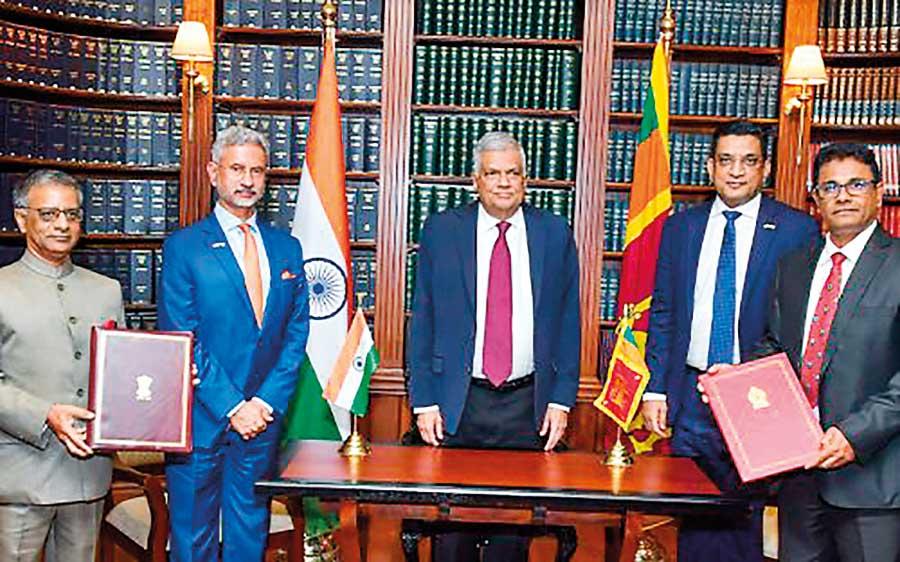Reply To:
Name - Reply Comment

India and Sri Lanka signed three new bilateral agreements aimed at enhancing cooperation between the two countries when India’s Minister of External Affairs Dr. S. Jaishankar met with President Ranil Wickremesinghe yesterday, at the Presidential Secretariat and held extensive discussions to further strengthen Indo-Sri Lankan relations.
The inauguration of the third phase of the housing project, supported by Indian loan assistance, was conducted during the meeting. While an initial allocation of Rs.1.026 million had been allocated per unit for the fourth phase, it was necessary to revise the budget to Rs.2.8 million per unit, due to increased housing unit costs.
To uplift the lives of Sri Lankan citizens, the Government of India has committed to providing additional funds for the speedy completion of nine development projects in the country, which are currently supported by the Government of India. The relevant agreement for this initiative was also signed yesterday.
These projects include the modernisation of 27 schools in the Northern province, housing initiatives in Mannar and Anuradhapura, improvements to the Hatton Thondaman Vocational Training Centre and Pussellawa Saraswati Central College, construction of a multi-ethnic trilingual school in Polonnaruwa, establishment of 2889 rainwater harvesting projects in the Jaffna area, promotion of vegetable cultivation in the Dambulla area and construction of greenhouse facilities, with a capacity of 5000 metric tonnes for fruit preservation. Additionally, a new surgical unit for the Batticaloa Teaching Hospital will be promptly built as part of these efforts.
An agreement concerning a joint project involving the Indian National Dairy Development Board, Gujarat Cooperative Milk Marketing Federation of India (Amul) and Cargills Group of Sri Lanka was signed, with the aim of elevating Sri Lanka’s local dairy industry.
This agreement emerged as a result of Wickremesinghe’s official visit to India and allocation of funding for the modernisation of Sri Lanka’s livestock sector. The primary objective of this new project is to increase milk production by 53 percent within the first five years and achieve self-sufficiency in milk production for Sri Lanka within 15 years. As part of this endeavour, it is anticipated that approximately 200,000 local farmers will be empowered through the provision of facilities such as high-quality medicines, animal nutrition and technical support.
Furthermore, this initiative encompasses digitalisation of the livestock sector, investments in new technologies to enhance the quality of milk-related byproducts and ensuring access to milk-related products at affordable prices.
In addition to this significant agreement, a special commemorative logo was also unveiled to celebrate the 75 years of Indo-Sri Lankan relations.